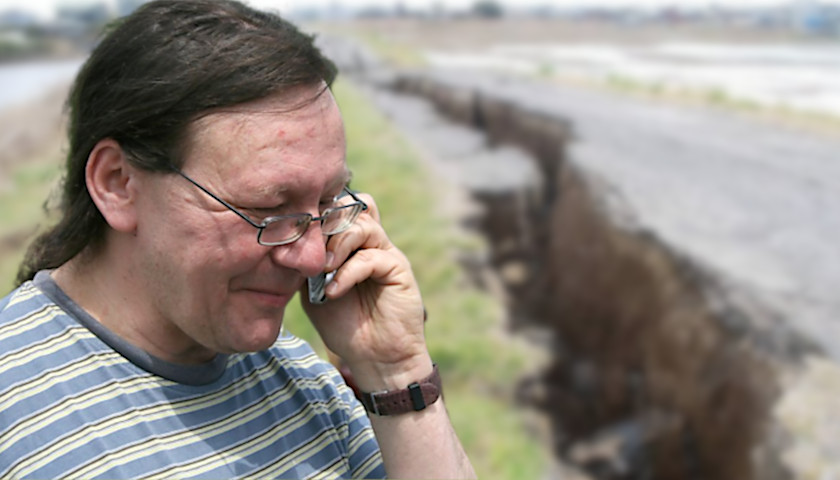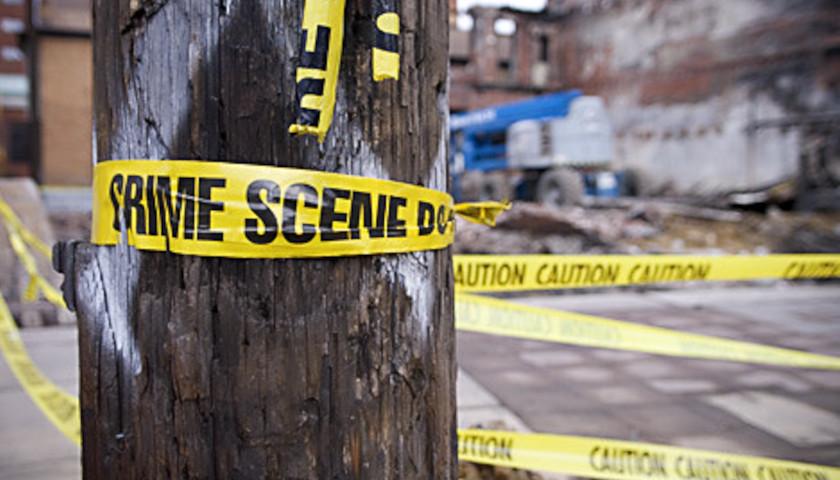Currently, there are no machines to tell us when the next big earthquake will rattle Tennessee.
Also, in the immediate aftermath of such a quake we likely won’t have the capacity to make cell phone calls.
All this, according to a Memphis geologist who studies earthquakes for a living.
Emergency responders would have to rely on radio frequencies, including Ham radio, said Gary Patterson with the Memphis-based Center for Earthquake Research and Information.
And it’s likely not because an earthquake will knock down a cell phone tower, he added.
“Following any disaster, cell phones go down because they are overused, but we can still send texts,” Patterson told The Tennessee Star.
Members of the Tennessee Emergency Management Agency and other law enforcement officials already coordinate with one another concerning how they’ll handle the immediate aftermath of a large earthquake, Patterson said.
“In the worst-case scenario, there is the use of ham radio, which works no matter what the conditions on the ground are,” Patterson said.
Members of CERI are working on new technology that will alert Tennesseans about a pending earthquake so they can shut down critical facilities in time, Patterson said.
“This is already in process on the West Coast,” Patterson said, adding the technology relies on distance from where earthquakes originate.
“When you are very close to the source then you will have less time to process the information. So, quick early warning comes about because an earthquake occurs at a certain point and it takes a certain amount of time for the damaging ground motions to get to your site,” Patterson said.
“If you can locate and estimate the magnitude of that earthquake immediately then you can alert a city or a site in seconds with advance notification. The closer you are to the source, though, then the less time you will have for the alarm.”
Such an early warning system worked recently in Napa Valley, Calif. before a magnitude 5 earthquake hit, Patterson said.
“The new early warning system shut down the train systems before the ground motions got into the city,” Patterson said.
“You can’t evacuate a building. You can shut down some gas or train lines. You can pull some fire trucks out of old buildings that may not be able to open the doors after the quake passes by. It is not something that has universal application.”
As The Star reported, a series of high-magnitude quakes that originated in the central part of the United States wrecked Memphis in 1811 and 1812. Those quakes started along the New Madrid Fault line in Missouri. Their reverberations rattled church bells as far away as Boston, Mass.
Also, as reported, far fewer people lived in Memphis and its surrounding regions in the early 19th century. With more people living in this part of the country in the modern age comes more potential for damage and more potential deaths and injuries.
– – –
Chris Butler is an investigative journalist at The Tennessee Star. Follow Chris on Facebook. Email tips to [email protected].
Photo “Person on Cell Phone” by Illdar Sagdejev. CC BY-SA 1.0.
Background Photo “Earthquake” by Katorisi. CC BY-SA 3.0.






Not to detract from the overriding message of cellular service inadequacy, but in the future, why not do a bit more research and inform rather than just alarm? To wit, there are several inexpensive options and protocols for those who choose not to pursue an amateur radio license….most all of which wind up linking into amateur radio operators eventually as part of the protocol. Here’s one with an explanatory video:
https://amrron.com/communications-resources/ch3-project/
This one is an organization that originally was formed to monitor CB channel 9 but has since expanded to offer a wide range of civil services for emergency management as well as special events:
https://www.reactintl.org/